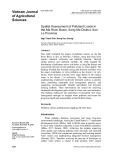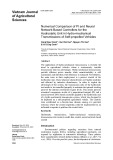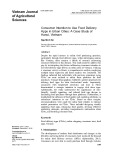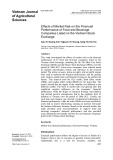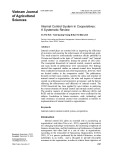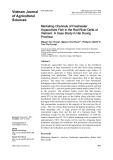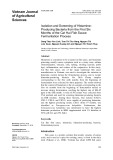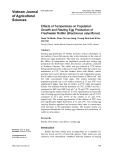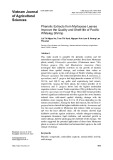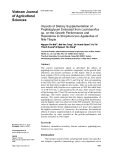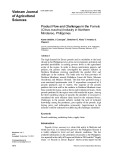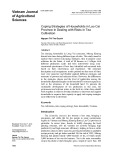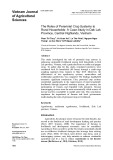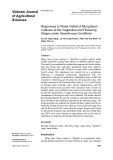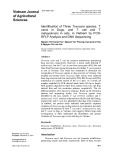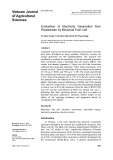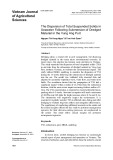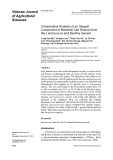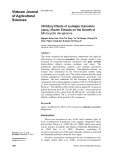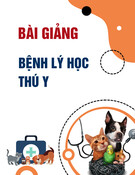
Vietnam Journal
of Agricultural
Sciences
ISSN 2588-1299
VJAS 2024; 7(2): 2146-2159
https://doi.org/10.31817/vjas.2024.7.2.05
2146
Vietnam Journal of Agricultural Sciences
Received: September 8,
2023
Accepted: June 3, 2024
Correspondence to
ltmchau@vnua.edu.vn
Factors affecting members’ satisfaction with
the quality of support activities of
cooperatives: A case of horticultural
cooperatives in Son La province, Vietnam
Le Thi Minh Chau1*, Nguyen Dang Hoc1, Ngo Thi Thu Hang2 &
Tran Quang Trung1
1Faculty of Accounting and Business Management, Vietnam National University of
Agriculture, Hanoi 131000, Vietnam
2Faculty of Accounting and Auditing, University of Economics and Business - Vietnam
National University, Hanoi 100000, Vietnam
Abstract
This study explored the factors affecting members’ satisfaction with
the quality of support activities of cooperatives using data collected
from 301 members of horticultural cooperatives in Son La province.
The study applied the SEVERQUAL concept and cooperative
principles to develop the research model. Exploratory factor analysis
(EFA) and the regression model were used for data analyses.
Members’ satisfaction with the quality of the support activities of the
cooperatives was specifically evaluated by measuring members’
satisfaction with collective input purchasing; collective marketing;
self-help activities; support activities for directly receiving
government support; and capacity-building activities. It was found
that “Responsiveness” was the prominent factor, followed by the
“Assurance and Reliability”, “Empathy”, “Competency of
cooperative managers”, and “Tangibles” factors, which were found
to positively affect the members’ satisfaction with the quality of the
support activities of the cooperatives. To enhance the members’
satisfaction with the quality of the support activities of the
cooperatives, the responsiveness of cooperative managers to market
risks; social relationships among members; members’ awareness
about voluntary participation opportunities in the cooperatives;
competency of managers in management and negotiation; internal
control systems of the cooperatives; involvement of members in the
decision-making process; investment of equipment with internet
connections; and the number of members should be improved.
Keywords
Cooperative, member, satisfaction, market risk
Introduction
In recent years in Vietnam, like in many other developing
countries, the cooperative model has developed, especially in the





